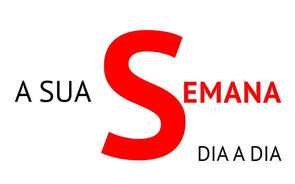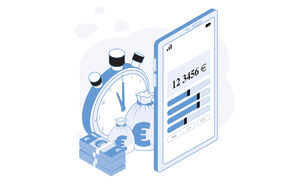Global Rebalancing and Dollar Risk - Stephen Roach
1 Mensagem
|Página 1 de 1
Global Rebalancing and Dollar Risk - Stephen Roach
Deixo aqui o link para o ultimo artigo de Stephen Roach que como sempre nos relata a sua visão sobre a economia mundial e nomeadamente o defice americano e o risco que uma queda abrupta do dollar pode implicar.
Link:
http://www.morganstanley.com/GEFdata/di ... igest.html
Deixo em destaque 4 parágrafos do artigo sobre o dollar:
«...There’s a general belief that any shortfall of dollar buying from private foreign investors can be offset by increased demand from central banks and treasuries around the world. In that vein, it’s important to note that fully 73% of the world’s official foreign exchange reserves remain lodged in dollar-based instruments (as of the latest official data point for year-end 2002) -- an enormous overweight that is more than double America’s 30% share in the global economy...»
...........................
«...The dollar may have the final say in this great debate. A rebalancing of an unbalanced global economy cannot occur without a shift in relative prices, in my view. That puts unmistakable downward pressure on the dollar -- the world’s most important relative price. In broad, trade-weighted terms the dollar has fallen about 10% (in real terms) over the past 22 months -- a quintessential soft landing. Based on current-account adjustments of the past, the dollar’s downward adjustment may only be half over, at best (see Caroline Freund, “Current Account Adjustments in Industrialized Countries,” Federal Reserve International Finance Discussion Paper No. 692, December 2000). What matters most, however, is the speed by which the dollar gets from point A to point B. A continued soft landing is consistent with the scenario of a benign current account adjustment. A rapid decline -- the so-called hard landing in the dollar -- would undoubtedly wreak havoc on financial markets and the world economies.
Macro provides a framework that lays out the tensions bearing down on the dollar. But it falls short in being able to make the distinction between the soft- and the hard-landing outcomes. The verdict on that count probably plays more on the intangible aspects of a faith-based currency. Today’s imbalances are large enough such that a sudden loss of confidence in expected returns on dollar-denominated assets could trigger a sharp sell-off in the currency. It’s anyone’s guess as to what might spark such a turn in sentiment. My top two candidates -- an escalation of protectionist trade actions by the US or a downside growth scare in the real economy. The basic point is that the die is cast for a significant further downward adjustment in the foreign exchange value of the dollar. The pace of the remaining portion of this correction depends almost entirely of the reaction of the foreign investor community -- private as well as official -- to those periodic shocks that always seem to occur.
Conventional wisdom amongst investors and policy makers is that America’s current account and currency adjustment will be benign -- playing out at a measured pace over a number of years. Federal Reserve Chairman Alan Greenspan recently endorsed just such an outcome (see his remarks at the 21st Annual Monetary Conference, Co-sponsored by the Cato Institute and The Economist, Washington, DC, November 20 2003). Nor is he alone in calling for yet another soft landing. As I travel the world, the common response that I get when speaking of the potential for a further drop in the dollar refers to the belief that Washington wouldn’t dare let the currency fall sharply before the upcoming presidential election. That reflects a deeply held view that the authorities have both the will and the means to offset the powerful confluence of market-driven and psychological forces. The soft landing, of course, has always been the preferred way out of tough circumstances. Yet sometimes, the exit strategy is determined by forces that transcend the will and determination of mere mortals. ...»
Bom Fim-de-Semana!
Link:
http://www.morganstanley.com/GEFdata/di ... igest.html
Deixo em destaque 4 parágrafos do artigo sobre o dollar:
«...There’s a general belief that any shortfall of dollar buying from private foreign investors can be offset by increased demand from central banks and treasuries around the world. In that vein, it’s important to note that fully 73% of the world’s official foreign exchange reserves remain lodged in dollar-based instruments (as of the latest official data point for year-end 2002) -- an enormous overweight that is more than double America’s 30% share in the global economy...»
...........................
«...The dollar may have the final say in this great debate. A rebalancing of an unbalanced global economy cannot occur without a shift in relative prices, in my view. That puts unmistakable downward pressure on the dollar -- the world’s most important relative price. In broad, trade-weighted terms the dollar has fallen about 10% (in real terms) over the past 22 months -- a quintessential soft landing. Based on current-account adjustments of the past, the dollar’s downward adjustment may only be half over, at best (see Caroline Freund, “Current Account Adjustments in Industrialized Countries,” Federal Reserve International Finance Discussion Paper No. 692, December 2000). What matters most, however, is the speed by which the dollar gets from point A to point B. A continued soft landing is consistent with the scenario of a benign current account adjustment. A rapid decline -- the so-called hard landing in the dollar -- would undoubtedly wreak havoc on financial markets and the world economies.
Macro provides a framework that lays out the tensions bearing down on the dollar. But it falls short in being able to make the distinction between the soft- and the hard-landing outcomes. The verdict on that count probably plays more on the intangible aspects of a faith-based currency. Today’s imbalances are large enough such that a sudden loss of confidence in expected returns on dollar-denominated assets could trigger a sharp sell-off in the currency. It’s anyone’s guess as to what might spark such a turn in sentiment. My top two candidates -- an escalation of protectionist trade actions by the US or a downside growth scare in the real economy. The basic point is that the die is cast for a significant further downward adjustment in the foreign exchange value of the dollar. The pace of the remaining portion of this correction depends almost entirely of the reaction of the foreign investor community -- private as well as official -- to those periodic shocks that always seem to occur.
Conventional wisdom amongst investors and policy makers is that America’s current account and currency adjustment will be benign -- playing out at a measured pace over a number of years. Federal Reserve Chairman Alan Greenspan recently endorsed just such an outcome (see his remarks at the 21st Annual Monetary Conference, Co-sponsored by the Cato Institute and The Economist, Washington, DC, November 20 2003). Nor is he alone in calling for yet another soft landing. As I travel the world, the common response that I get when speaking of the potential for a further drop in the dollar refers to the belief that Washington wouldn’t dare let the currency fall sharply before the upcoming presidential election. That reflects a deeply held view that the authorities have both the will and the means to offset the powerful confluence of market-driven and psychological forces. The soft landing, of course, has always been the preferred way out of tough circumstances. Yet sometimes, the exit strategy is determined by forces that transcend the will and determination of mere mortals. ...»
Bom Fim-de-Semana!
Surfer
1 Mensagem
|Página 1 de 1
Quem está ligado:
Utilizadores a ver este Fórum: Bing [Bot], Doreen, Google [Bot], Google Adsense [Bot], Kooc, Nightrader, Nuno V e 77 visitantes


